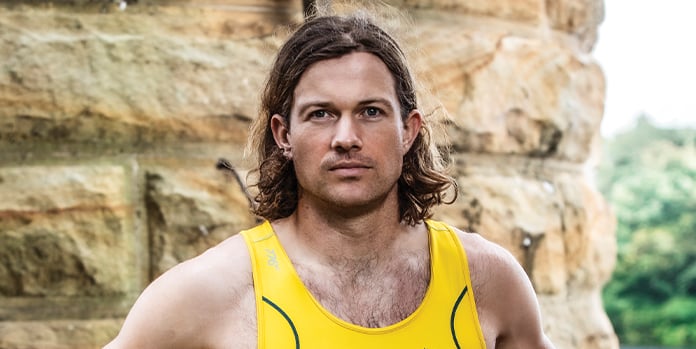For Tim Masters (OM 2009), the path to the 2024 Paris Olympic Games has been shaped by persistence in the face of multiple setbacks. His crew missed out on qualifying for the 2016 Rio Olympic Games in the so-called “regatta of death” by just one place. Then, in 2020, Tim was set to travel to the 2021 Tokyo Olympic Games when the COVID-19 pandemic delayed competition by an entire year.
“After Tokyo, I headed back to Canberra and trained hard,” Tim says. “Now I find myself about to compete in Paris.”
The tenacity to succeed
Looking back at his early rowing days at Melbourne Grammar, Tim remembers a rocky start. “It’s funny, because today people tell me I must be naturally gifted, but my first 2km time on the ergo was 8:05,” he says. “It was deplorable.”
“What I eventually came to like about rowing was the fact that it rewards people who just refuse to give up,” Tim adds. “I think if you have the mindset that you’re going to persist over the days, weeks, months, and years, you can develop the characteristics you need to be successful.”
Paris will be Tim’s second Olympic Games, rowing in the bow seat in the Men’s Coxless Four alongside younger Old Melburnians Fergus Hamilton (OM 2017) and Jack Robertson (OM 2016). Having faced down many challenges to reach this point, Tim says that as the Games approach, his focus is on acting as a grounding force for his teammates.
“My role in the crew is to be positive, to give encouragement, and to stay present in the moment,” Tim explains. “I’ve seen a lot of people at the Olympics get overawed by the atmosphere, but at the end of the day, it’s important to just stick to the fundamentals as the pressure ramps up.”
How early encouragement can change lives
Tim took this same methodical approach to rowing during his time at Princeton, where, alongside completing a degree in History, he stroked the Princeton crew to their first Intercollegiate Rowing Association medal in nearly 10 years.
“I just persisted, trying to get to the next level,” Tim says. “Even at school if I was in the 10Cs, I was trying to get into the 10Bs. If I was in the Third VIII, I was trying to get into the First VIII. Obviously, everyone wants to be the best, but you have to look at what the best is and think about how to get to that standard by focusing on what you can control.”
Tim emphasises that the discipline and focus required to excel in rowing has had a positive impact on other areas of his life. “Through the highs and lows of rowing, you learn a lot about yourself,” he says. “What I found was, the more I rowed, the better my grades got, and that was true for my teammates as well. Maybe it’s because rowing is so demanding, it forced us to say ‘no’ to a lot of the things that can pull you off the path.”
Tim’s message to younger rowers—and their coaches—is never to underestimate the impact of another person’s encouragement. “One of my coaches at Melbourne Grammar, Nick Lloyd, believed in me when I didn’t believe in myself,” Tim says. “He told me I had the potential to be good at the sport, and without that, I think there’s a good chance I might not have continued. So, if you see a young person who has potential, in any area, letting them know could be the thing that changes their life.”
Read more about the other Old Melburnians representing Australia at the 2024 Paris Olympic Games:
You can view a list of all Melbourne Grammar School Olympians here.



